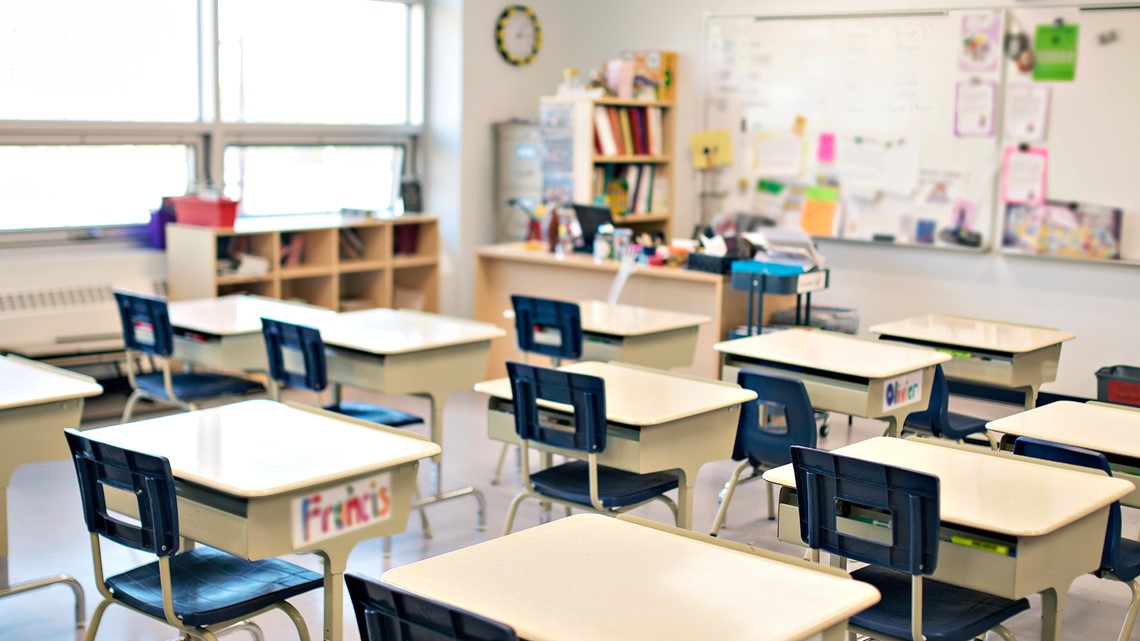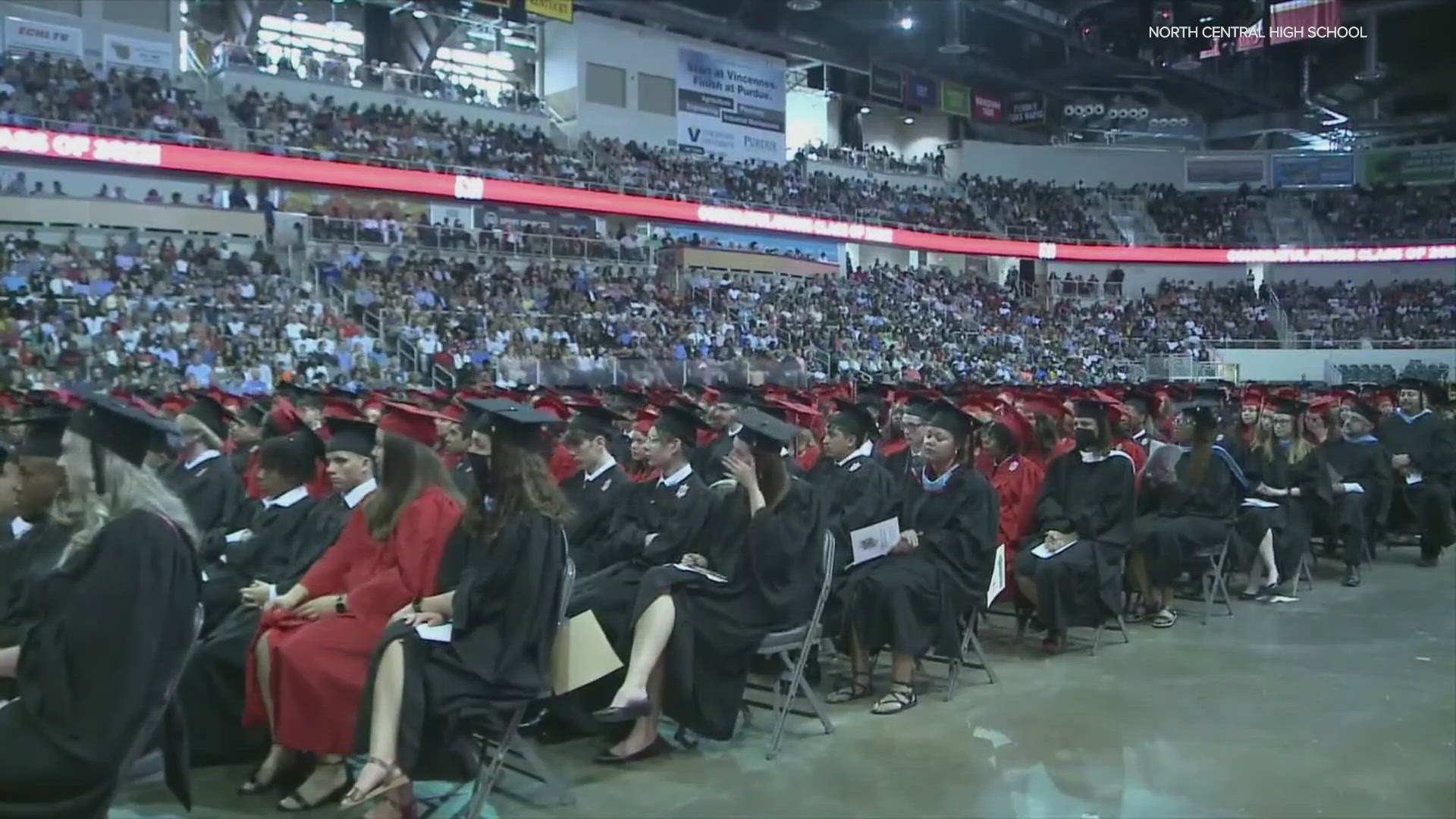INDIANAPOLIS — Some Indiana students went back to school on Wednesday.
While graduation is a few years off for students starting middle school this year, big conversations are already happening about proposed new requirements to earn a high school diploma. The new requirements put more emphasis on workforce development and real world experience for students who may not want to go to college.
Indiana's Department of Education first revealed those proposed changes in March, but there's still time for the public to give input.
Georgia Watson's oldest graduated in 2018. He thought he wanted to be an engineer.
"My first son graduated with an honors diploma. He did go to college, but he did not finish college,” Watson explained. "Without any experience, any internships, he really didn't understand what that type of job entailed."
Watson hopes her youngest son will have a different experience by the time he graduates high school.
She's counting on the new diploma requirements proposed by the state to ensure that.
Watson is a former high school teacher and now works for the Indiana Department of Education.
"I feel like this new diploma track will prepare my other son, who's going into ninth grade, a lot better than the original diplomas did for my older child,” Watson said.
Under the current system, Core 40 high school diplomas have a college-bound focus, with options to earn more credits for academic or technical honors.
The newly proposed diplomas would eliminate those honor distinctions and the course requirements to earn them. In their place would be the GPS and GPS Plus diplomas, which stand for “Graduates Prepared to Succeed.”
The idea behind the new diplomas is that the college track isn't for everyone.
Students can also benefit from work-based learning that would count toward graduation.
"Maybe you are spending part of your school day at a job or an internship, and you still are taking some course work at your high school,” explained Adam Jones, a former teacher turned education consultant.
Jones believes the new diplomas would give students hands-on learning experiences.
“That employer could potentially signoff on competencies that you’ve received,” Jones said.
Not everyone thinks more students in the workforce is a good idea.
“My fear is now that we are trying to send more students out into the workforce, while they are still students, is now going to close that door for all of our students with significant disabilities,” said Stacy Kurdelak, a parent and high school special education teacher.
Kurdelak worries more students in the workforce could mean fewer opportunities for the kids she teaches.
"If it's easier for an employer to take a student who isn't going to require all that extra help, they may choose to do that, and then my students are back to where we started 20, 30 years ago,” Kurdelak explained.
Some educators and parents are also worried students who want to go to college may not be as ready under the new diplomas because they don't come with world language, advanced math and fine arts requirements.
“We’re seeing a lot of those classes — some kids don’t even need to take — so it seems counterproductive,” Kurdelak said.


The Indiana Department of Education is already responding to some concerns about the proposed changes.
It's now suggesting students can earn seals on top of their diplomas showing they're ready for enrollment in college, enlistment in the military or employment in the workforce.
The Indiana State Teachers’ Association says teachers need to be part of that conversation.
"How are we going to ensure that you have educators who are running the K to 12 system at the table, really talking about, ‘This is how it works, and this is what our students need,’” Jennifer Smith-Margraf with the ISTA asked.
Students like Watson's youngest and all his classmates.
"I think a lot more needs to be done in order to prepare our students for their post-secondary education,” Watson said.
Whatever her son decides to do, Watson hopes it leads to his success after graduation.
Right now, nothing is set in stone.
The Indiana Department of Education is still taking feedback on this latest proposal.
There's a public hearing on July 30.
The board has until the end of the year to vote on a final proposal.
If you'd like more details on the diploma proposals as they stand now, here’s a link to the Indiana Department of Education's website where you'll find those details.

